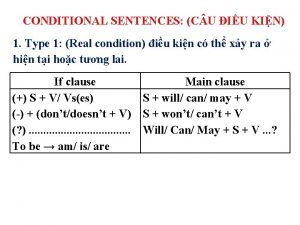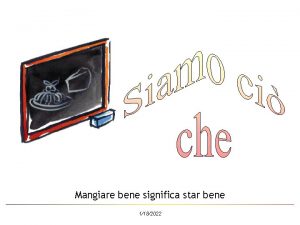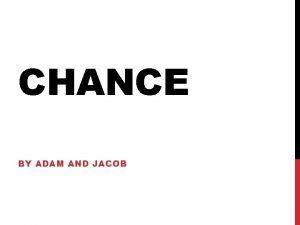1182022 1 Now or Never Our Chance to











- Slides: 11

1/18/2022 1 Now or Never: Our Chance to Fix VOCA

2 Agenda: Brief background on VOCA Current VOCA funding challenges Legislative “VOCA Fix” and where things stand What can we do?

3 VOCA – History The Victims of Crime Act, which created the Crime Victims Fund that provides dollars for VOCA grants, was passed in 1984. VOCA grants fund direct services for victims of crimes. VOCA also funds victim compensation, which helps survivors pay medical bills, makes up for missed wages, and, in homicide cases, helps pay for funeral costs. VOCA grants are not taxpayer-funded. Instead, they are paid for out of the Crime Victims Fund (“CVF” or “the Fund”), which comprises of federal criminal monetary penalties. Federal Criminal Fines; Forfeited bail bonds; Penalties, etc. Every year, Congress decides how much to release from the CVF, which is ultimately distributed by States.

4 VOCA – Background

5 VOCA – Funding Challenges: In Fiscal Year 2020, the VOCA disbursement - and thus the funding available for victim service providers - decreased by 25%, and victim service providers have been told to expect further, potentially catastrophic cuts. The past and expected future cuts to VOCA grants are the result of concerningly low deposits into the Fund. As the size of the Fund dwindles, less money is available to be disbursed to the states in the form of grants. Instead of seeking convictions in federal crimes, particularly white collar crimes, the Department of Justice is increasingly relying on non-prosecution and deferredprosecution agreements. If these cases had been prosecuted, the monetary penalties would have been deposited into the Fund. Instead, the money that would otherwise go to serve victims is being deposited into the General Treasury.

6 VOCA – Where things stand:

7 VOCA – Victims Comp: State victim compensation funds are facing a similar challenge because many are primarily funded through state criminal monetary penalties. Compensation funds in many states are running dry and are unable to help survivors pay for medical bills, counseling, lost wages, and even funeral costs. Moreover, the onset of the COVID-19 pandemic has delayed many prosecutions, resulting in even less income for the state compensation funds. The federal government’s reimbursement to a state victim compensation program is based on the size of the state’s payments to victims from these dwindling state funds, and thus they are also receiving less support from the federal government, while the need for these funds continue to mount.

8 VOCA Legislative Fix What does the VOCA Fix legislation do? Redirect monetary penalties from federal deferred prosecution and non-prosecution agreements that would otherwise be deposited into the General Treasury into the Crime Victims Fund; Increase the federal reimbursement to victim compensation programs from the current 60% to 75%; and Allow states to request a one-year no-cost extension from the Attorney General, as allowed for other Department of Justice formula grant programs, to ensure states can thoughtfully and effectively distribute victim service grants without being penalized.

9 VOCA Legislative Fix The VOCA Fix also: Require VOCA Administrators to waive the 20% match requirement for victim service subgrantees for the pendency of the COVID-19 crisis and one additional year; Allow state VOCA Administrators to waive subgrantee match requirements at their discretion after the aforementioned waiver expires and require state VOCA Administrators to develop and publish a policy and procedure for obtaining a waiver; Instruct OVC not to deduct restitution payments recovered by state victim compensation funds when calculating victim compensation awards; and Provide flexibility for state compensation programs to waive the requirement to promote victim cooperation with law enforcement if good cause is established by the program.

10 Questions? What can we do? Contact your US Senators and US Reps and urge that they include the VOCA Fix on the FY 21 Omnibus Appropriations bill. It is important to note that reaching out to Congress regarding VOCA is NOT lobbying Encourage others to contact their elected officials

11 Contact info: Denise Edwards dedwards@nca-online. org Will Laird wlaird@nca-online. org Kristie Mc. Kenney kmckinney@nca-online. org
 You never get second chance make first impression
You never get second chance make first impression What can run but never walks has a mouth
What can run but never walks has a mouth He never polishes his shoes so he never looks smart
He never polishes his shoes so he never looks smart He never polishes his shoes, so he never looks smart.
He never polishes his shoes, so he never looks smart. Your love never fails you never give up on me
Your love never fails you never give up on me Our god never fails
Our god never fails We are never weary of the grand old song
We are never weary of the grand old song Now i see it now you don't
Now i see it now you don't Ouryourh love lixury
Ouryourh love lixury Let’s begin our discussion now
Let’s begin our discussion now Our love now poem
Our love now poem And now a word from our sponsor
And now a word from our sponsor





















